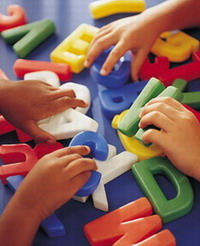Login form
English language
 If you speak English, you have plenty of people to talk to. People use the English language to communicate in the
If you speak English, you have plenty of people to talk to. People use the English language to communicate in the
WHY ENGLISH ISN’T REALLY ENGLISH
English is one of the great thieves. It is constantly borrowing. It started out taking words from Latin, Greek, French, and German.
Then English went on to borrow words from more than 50 different languages.
From Italian, it took cameo, stanza, and violin, for example. From Spanish and Portuguese, it borrowed the words alligator, canyon, and sombrero. From Native Americans, it got raccoon and wigwam.
Science caused an explosion in words. Some words in science combine parts of Greek and Latin words. They include penicillin, stethoscope, and supersonic. Others were borrowed from languages spoken today. Robot comes from a Czech word.
The English language has been stealing words for more than 1,500 years. The most complete dictionary of the English language contains a whopping 600,000 words.
BURPS AND OTHER WAYS ENGLISH EXPANDS
Onomatopoeia (pronounced AHN-uh-MAH-tuh-PEE-uh) is the creation of words that imitate natural sounds, words such as burp and clink. Another way to get new words is adding prefixes and suffixes. Prefixes, such as mis- or ex-, go onto the front of words and create misread, ex-boyfriend, and other words. Suffixes, such as -ness or –ist, attach to the end of words.
Separate words can form compound words, such as bonehead and downpour. Words can collapse into each other, such as brunch, from breakfast and lunch.
It’s common for new words to grow from previously existing words—for example, to burgle, formed from burglar. The use of words can change. Shower started out meaning “light rain.” It later referred to a bathroom shower, and then became used as a verb, to shower.
WHY SPELLING IS SO TUFF
English is said to have one of the most difficult spelling systems in the world. Take a look at these four words: anxious, fission, fuchsia, and ocean. They all spell the sh sound differently. English has 14 different spellings for the sh sound.
Throughout history, the spelling of English words hasn’t changed as much as their sounds have. For example, people once pronounced the k in knife and the gh in right. We no longer say those letters, but we’ve kept the old spelling. English also tends to hold on to the spelling of words it borrows from other languages.
The weirdest examples of differences between spelling and pronunciation in English are the six different pronunciations of ough. Say these words aloud: bough, cough, thorough, thought, through, and rough. Some spellings have lasted from a time when the gh was pronounced in English.
The English language is unusual in the way it borrows and grows. New words are constantly being introduced. The verb to google is a new word that means “to do a fast Internet search.” It comes from the widely used Internet search engine, Google.
Source: Microsoft ® Encarta

